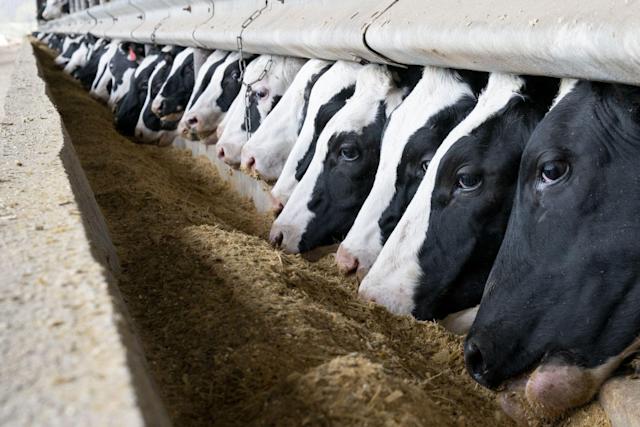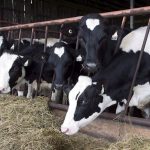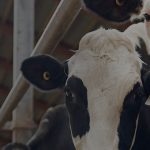
In 2018, the farm was upgraded to a robotic facility featuring two Lely Astronauts for milking and a Lely Vector for feeding housed in a brand-new building. The herd size more than doubled very quickly. Not long after, I found myself leaving a 20-year career in IT to work on the farm and eventually manage it with my sister, the owner. Over the next year-and-a-half, the staff that was hired was unintentionally all women – women who had never worked on a farm or near cows. Our learning curve was steep; however, the laughter, tears and pride we experienced together is unforgettable.
The farm staff, the animals, the equipment … we all became a family. All of us learning and growing together with the most amazing support from everyone we encountered. Our skill sets grew by leaps and bounds from guidance we received from everyone we came in contact with – our veterinarians, local equipment operators, mechanics, company representatives, retired farmers, random visitors, and the list goes on. We learned every single cow’s individual personality, quirks and pedigree. We sang and danced for them while we fed and cared for them – and above all, we loved every single one.
Farming is not easy. It is a lifestyle, and much like the saying that it takes a village to raise a child, it takes a village to run a farm. In our community, there are not many farms left. The pandemic hit hard and left its mark on agriculture as a whole. Getting supplies, staying staffed, protecting ourselves and selling our product was all hard, as it has been for the entire dairy industry. We also found ourselves dealing with two major challenges.
Water is a necessity for a dairy farm. Despite our efforts and large financial investment, over the last three years our water quality and availability has continued to degrade. Manure removal has also been an ongoing challenge. We are in need of a proper lagoon and, unfortunately, environmental factors demand a very expensive solution in addition to the rising cost of materials.
Anything is possible with enough money though, right? To what end? We spent months and months researching potential avenues for our future – grants, our local market, diversifications and expanding. At the end of the day, it comes down to the fact that farming is a lifestyle. For a relatively small farm, a lifestyle that needs family longevity. Our children are not interested in this lifestyle, as much as they enjoy the animals and agriculture. And we can’t blame them; it’s hard.
So the gut-wrenching decision was made to shut down and get out of the business of milking cows. The anguish coming to this decision was unreal. Are we failures, ending a legacy that spanned three centuries? Are we a disappointment to our consumers and community? Are we swimming in guilt at shipping all our “ladies” off to live at new farms? We certainly struggled with all these emotions and more, but at the end of the day, we had to acknowledge the relief that ultimately came with a decision made.
It hasn’t been easy, dismantling a dairy farm, but we know we can be satisfied that we have done it with as much careful planning and thoughtfulness as possible. We took our time and found a wonderful home for our herd at a brand-new facility. We personally helped move them there and helped them get acclimated.
Above all, we have pride. Pride in how we did our jobs, pride in how we cared for our animals, pride in the relationships formed with every person who stepped foot on our farm. The future looks different now for us than it did a year ago, but we will always carry a piece of farming with us into whatever adventure is next. We have all been changed for the better by a bunch of four-legged cows that trusted us to care for them, and for that we will forever be grateful. end mark
Trista House-VanDuzer farms with her family at Twin Mill Brook Farms LLC in Central Square, New York. Trista has a YouTube channel where she shared videos from the farm and from moving the herd. Search YouTube for “From Desk to Dirt.”
























